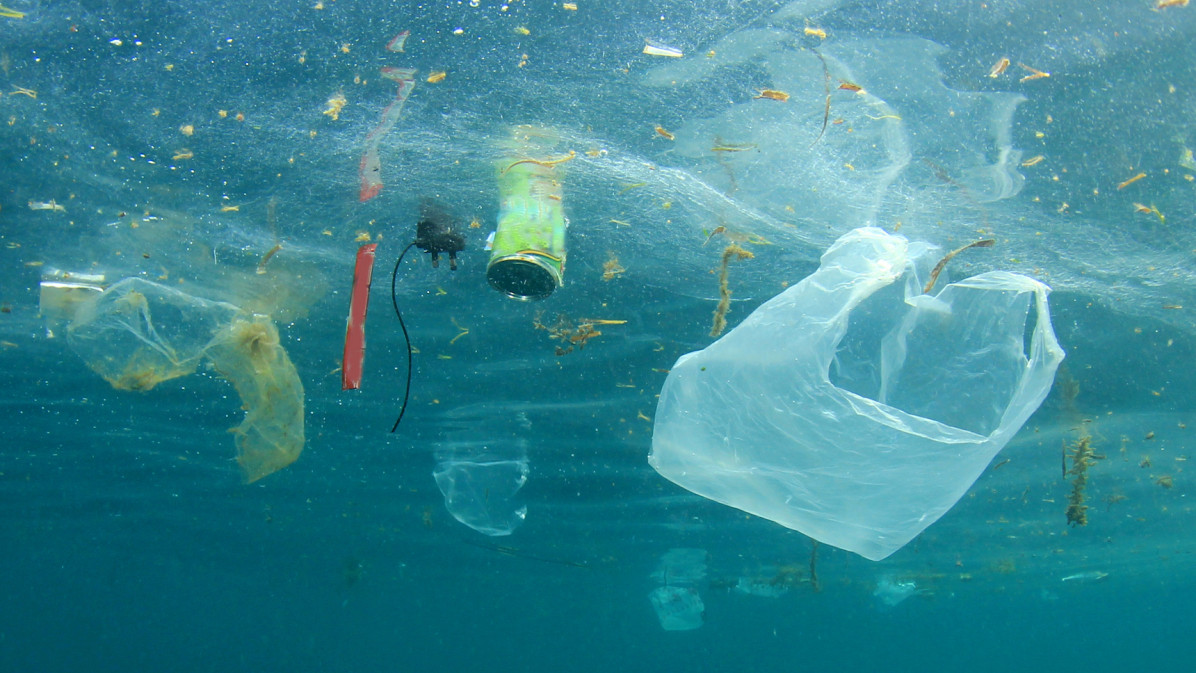The plastic reality "far worse"
The global plastic reality is an even bigger horror and threat to the environmental stability of planet earth than feared.
“What we see is a runaway train on plastics. We have to slow it down, then stop,” was the stark message to a closed gathering of experts here in Davos. “It is feasible to solve, despite how massive and growing it is.”

The massive challenge to neutralise the huge levels of plastics clogging up the ecosystems of our oceans is big enough. Much more must be done urgently on innovation and redesign to stop plastics production, even though their use is so central to the global economic life we all take for granted.
Overall, what is needed is the business equivalent of “rocket fuel” to supercharge efforts.
Here are anonymised quotes from major operators and well known brands in the plastics world.
On the challenge
The need is super urgent. “People want results overnight.” As a result “we must work across multiple fronts in a way we have never worked before”. This will have profound implications for the reliance on plastics, especially in the food supply chain.
Yet one government minister described the “hell” of being accused of not doing anything at all on plastics because of the instant expectations. “People do not realise how much they use single use plastics in their life.”
The reality of producing innovative solutions has a time line of at least 3-5 years. “It is so hard to be ambitious and secure quick wins.”
On how we view plastics
There has to be a change of mindset. There are “good plastics” which can be recycled or composted and “bad plastics” which will destroy the environment for 600 years.
“We don’t recycle that valuable commodity, we throw it out,” said a leading commodities professional. “It is a phenomenal business opportunity. Plastics become a resource… .a valuable commodity.” Recycling will provide new work and economic possibilities to tens of million who have no work.
On consumers
“People do not realise how much we use single use plastics.”
“Educating the consumer is a big challenge. There is an enormous amount of ignorance. It needs a big infrastructure …and a stronger commitment from the demand side”. “We are working to engage consumers in new ways.”
But consumers do change their habits if plastics have a value and they can easily be recycled. In New South Wales in Australia, one experiment has resulted in 1.1 billion cans and bottles being recycled.
Producers and retailers are already consumer testing dispensing machines for many goods that we all just buy off the shelves in plastic packaging. In the future, customers will have to bring their containers to be refilled.
On confronting the cost
“We can make it affordable,” said a leading plastics producer. “It is only a question of scale.” But it is not just about production. “The entire value chain must smell the coffee.”
One major food producer described “spending a lot of money” to research fundamentally different options for excluding packaging. Others are doing the same.
On changing reality
Companies present described “the sense of urgency internally” and the “ending of internal resistance to change from our management teams.”
One described his company’s three core principles: “less plastic, better plastic, no plastic.” But remarkable was the business admission that having set their goals, these major players don’t yet know how to achieve what they have committed to. It is a massive experiment in innovation.
For example food and beverage producers said: “We have not cracked the code for beyond the bottle.” There have to be different ways to supply snacks and drinks. “You should expect snacking solutions that have no packaging.” One example: the principle of multi-layered plastics which keep food fresh for longer has to change because these plastics don’t decay.
Remarkably, leading players in plastics made clear that they would replace market competition with a willingness to partner on both the science and practical implications. “We hold hands to solve this together … We have to run very quickly together.”
One described the need for “a national plastic pact”.
On financing and investment
“There is enormous energy from wealth clients. They want to put their investment dollars to work.” But they want full transparency and currently “there is not enough clarity” on the options. ”Capital is there to flow, but it must be a commercially viable business model.”
On the direction and speed of travel The hidden horror of global plastics has been known for years, but was only recognised as a pressing issue at the World Economic Forum here in Davos four years ago.
The challenge is enormous. But supercharged by the Ellen Macarthur Foundation and then Sir David Attenborough’s vivid TV documentaries in the past eighteen months “I have never seen as much movement on an issue” concluded one global organisation.
“I have a better feeling. The revolution is coming.” This will be “a pivotal year for the planet.” Reversing the plastics reality is at the heart of that.
As I write this, with most top people leaving Davos, I see that TESCO, the supermarket giant in the UK, has just announced it is removing plastic wrapping from its multipack tins to cut down on waste. They say it will remove an estimated 350 million tonnes of plastic a year from the environment. This is an example of what Greenpeace labels “pointless plastic”.
